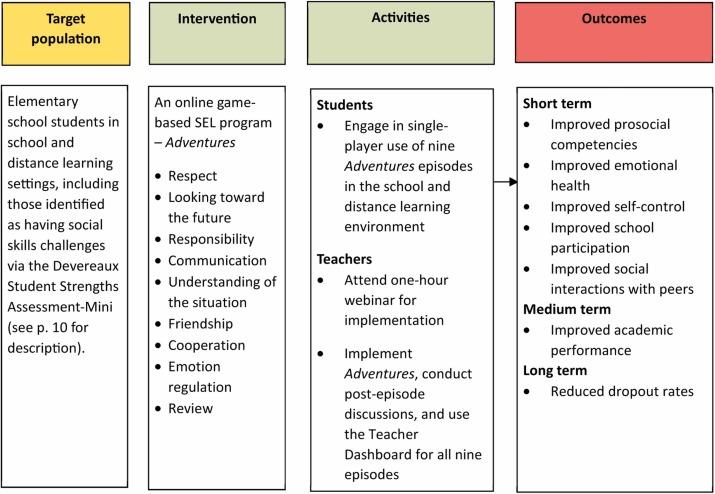Measuring the impact of SEL Programs: Proven Strategies for Meaningful Assessment
Social and Emotional Learning (SEL) has rapidly become a priority in educational settings, fostering essential life skills such as empathy, resilience, and teamwork. However, to maximize the effectiveness of SEL initiatives, it is crucial to measure their impact through meaningful assessment strategies. In this article, we uncover proven ways to assess SEL programs, highlight their benefits, and provide practical tips for triumphant implementation.
What are SEL Programs and Why Measure Their Impact?
SEL programs focus on developing the emotional intelligence, communication, and interpersonal skills of students. through targeted interventions, these programs help learners navigate social situations, manage emotions, and develop positive relationships. Measuring their impact matters because:
- It validates the effectiveness of SEL initiatives.
- Helps identify areas for enhancement.
- Informs stakeholders about student progress and program value.
- Shapes policy decisions and resource allocation.
Proven Strategies for Assessing SEL Program Impact
Meaningful assessment of SEL programs uses a combination of quantitative and qualitative methods. Here are the most effective strategies:
1. Pre- and Post-Program Surveys
- Student Self-Assessments: Before and after the program, students complete surveys evaluating their skills in self-awareness, self-management, and social awareness.
- Teacher Observations: Educators record behavioral changes and emotional growth.
2. Behavioral and Academic Data Analysis
-
Tracks attendance, grades, disciplinary incidents, and classroom engagement as objective markers of progress.
-
Correlates SEL participation with academic outcomes.
3. Focus Groups and Interviews
-
Facilitates in-depth discussions among students, teachers, and parents to capture real-world perspectives.
4. Observational Checklists and Rubrics
-
Utilizes structured tools to systematically observe SEL skill development in classroom settings.
5. Portfolio-Based Assessments
-
Compiles student work (such as reflection journals, group projects, or creative assignments) to showcase growth over time.
6.Standardized SEL Assessment Tools
-
Includes evidence-based tools such as the Devereux Student Strengths Assessment (DESSA) and Social Skills Improvement System (SSIS).
-
Offers validated data for benchmarking and comparison.
Benefits of Measuring SEL Program Effectiveness
Employing proven assessment strategies for SEL programs leads to measurable benefits:
- enhanced Student Outcomes: Improved emotional regulation, academic achievement, and social relationships.
- Data-Informed Decisions: Empowers educators to tailor instruction and allocate resources wisely.
- Greater Program Accountability: Provides transparency for administrators and community stakeholders.
- Continuous Improvement: Continuous feedback ensures SEL programs evolve to meet diverse student needs.
case Studies: SEL Assessment Strategies in Action
Case Study 1: Urban Middle School – Survey-Based SEL Assessment
An urban middle school implemented a year-long SEL curriculum. They measured progress using student and teacher surveys at the start and end of the year. Results showed a 35% reduction in disciplinary cases and a marked increase in students’ sense of belonging. Teachers reported higher levels of classroom engagement, linking qualitative observations with survey data for a comprehensive view.
Case Study 2: Rural Elementary School – Portfolio and Focus group Assessment
The school used student-created portfolios combining reflective writing and creative artwork to demonstrate SEL growth. Focus groups with parents and students provided additional insights. The combination of tangible artifacts and personal narratives allowed educators to customize interventions and celebrate individual progress.
Case Study 3: district-Wide Implementation – Standardized Tools
A school district rolling out DESSA assessments every semester tracked SEL skills development at a macro level. By benchmarking results across schools, they identified high-impact programs and standardized successful approaches. Stakeholders appreciated data-driven presentations at board meetings, lending credibility to SEL priorities.
Practical Tips for Meaningful SEL Program Assessment
- Set Clear Outcome Goals: Define what SEL success looks like for your school or district.
- Use Multiple Measures: Combine qualitative and quantitative data for a nuanced understanding.
- Engage All Stakeholders: Include teachers, students, parents, and administrators in the assessment process.
- Leverage Technology: Utilize digital tools for surveys, data analysis, and portfolio management.
- Ensure Confidentiality: Safeguard student privacy and use data ethically.
- Iterate Regularly: Review and refine assessment tools every academic year.
First-Hand Experience: Insights from Educators
Ms.Rachel Thomas, SEL Coordinator:
“the key to meaningful SEL assessment is involving students in the process. When they reflect on their own growth and set future goals,we see a dramatic increase in self-motivation and personal accountability. surveys are great—but pairing them with classroom projects and peer feedback creates a fuller picture.”
Mr. Jake Lee, High School Counselor:
“Don’t underestimate the power of family engagement in SEL program assessment. Our most transformative improvements came after we included parent feedback in our annual reviews. Their perspectives added depth and context to our data.”
Conclusion: Transforming SEL Program assessment for Lasting Impact
Measuring the impact of SEL programs requires more than just collecting numbers. By embracing a multi-layered assessment approach—combining surveys, standardized tools, portfolios, and stakeholder feedback—educators can unlock the full potential of SEL and drive lasting change in student lives. Effective assessment not only informs program improvements but also celebrates the unique social and emotional growth of every learner, ensuring that SEL remains a pillar of holistic education.
Are you ready to elevate your SEL program assessment strategy? Start with clear goals,use proven methods,and remember: meaningful measurement paves the way for lasting success in your school community.

